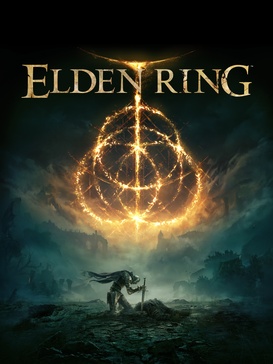Discussions about the game’s brutal difficulty may be misleading
By JACOB ANDERSON — arts@theaggie.org
As “Elden Ring” whips gamers into a frenzy, topping sales charts and likely raising the risk of carpal tunnel for millions across the globe, discussions about the uncommon difficulty of it and its predecessors have once again returned. Since difficulty options in single-player games have been standard for over a decade, their absence in the Souls series remains a conspicuous design choice even 13 years after “Demon’s Souls” first release and one that some have deemed outdated.
These arguments invariably take the same form: One side cites the games’ difficulty as a fundamental element of the experience they offer, such that asking for an easier Souls game would be akin to asking for a more lighthearted Slayer album. The opposing side points out that the presence of an easier difficulty option would make the games more palatable to inexperienced players without having any effect on the core experience of those seeking a standard “Dark Souls” challenge. At this point is where the argument loses focus, typically eliciting some notes of “the games aren’t really that hard anyway” or “typical gatekeeping Gamergater” — something in that class. But there’s always some important point that’s missing, responsible for the unceasing urge the series’ fans have to push back against any suggestion of an easier option in these games. One viral response suggests that an easier Souls game would be fundamentally different, like asking “Animal Crossing to add combat.” While this is mostly true, it does little to counter the stance that the addition of an easier option does not affect one’s ability to play the game at its intended difficulty. So, then, what does?
I submit that the addition of an easy mode to “Elden Ring” and future Souls games would be detrimental because the unique experience of Souls games is a product not just of the games being difficult in an era in which almost every game released by a triple-A studio is trivially easy in order to maximize sales, but of that difficulty being a mandatory, nonelective part of the games.
Depending on your skill level (and what type of character you build), certain “Elden Ring” bosses can require an hour or more of dedicated effort to defeat. First-time players especially are bound to come across some moment in which progressing any further seems impossible. While “Elden Ring,” in contrast to earlier Souls games, allows players to explore other parts of a titanic open world to grow stronger before facing mandatory bosses, this remains a principle experience of the game. If such an experience sounds frustrating and unfun, there’s a good chance you haven’t seriously tried a Souls game — the tangible danger and power lurking throughout the world gives the player’s interactions with it more weight and comprises a substantial part of what makes the games so addictive.
“Elden Ring” selling 12 million copies in under 3 weeks should be evidence enough that these barriers don’t ruin the game. But an important part of that barrier remaining tolerably frustrating rather than just painful is that a given boss isn’t hard because the player picked an arbitrary option at the beginning of the game but because the boss, on an essential level, is strong.
That isn’t a meaningless distinction: The appeal of most video games lies in the completion of a goal. Usually, this means beating the game. But like most things in life, a game in which the completion of that central goal is too easy isn’t capable of producing meaningful satisfaction. If there’s no chance of failure, the task becomes arbitrary. And if you’re trying to complete a goal, what incentive is there to make it more difficult? Confident and experienced players tend to play on harder difficulties because as they improve, the easier options stop being stimulating. New players, however, when given the option, tend to modify difficulty to the point at which they’re able to complete the game with only moderate effort. If that possibility is removed, the challenge becomes real.
The Souls games present an obscure, abstruse world in which failure is not just guaranteed but a necessary and expected part of progression. Its dangers and secrets are so enticing because they remain out of the player’s reach. If you tear away that layer, the game is just hitboxes and collision planes like everything else. How boring is that — a set of finely-tuned, 3D boxes whose integers sometimes change. It’s the illusion of a digital world that turns the logic underneath the game into something with verisimilitude, capable of actually reaching a player, and that world needs to be kept at a distance for the illusion to survive.
Of course, one might say that all difficulty in video games is elective on the basis of it being the player’s choice to play the game rather than do something else, like spending time with friends or a significant other. There might be some merit to that objection, but probably very few people invested in a discussion about video game difficulty want to think about something like that: such a consideration might prompt them to realize that they’ve put in, say, 100 hours since release. Wouldn’t that be something?
Written by: Jacob Anderson — arts@theaggie.org




